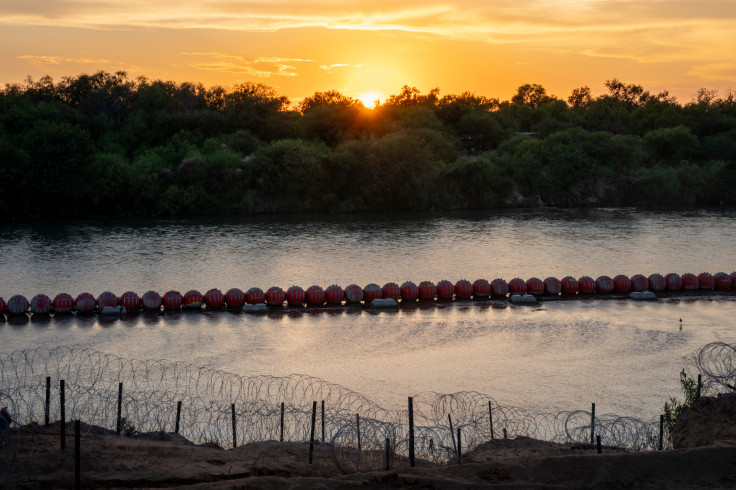
The Trump administration is reportedly considering deploying buoys along the Canadian border, mirroring a measure already taking place in Texas.
NewsNation reported on Tuesday about the possibility, adding that the buoys could be used in a Montana lake that crosses into Canada.
The outlet quoted acting Spokane sector chief Jason Liebe, who said they are in the planning phases of the initiative. He added that the barriers would help agents monitor the area and control whether people want to enter the country unlawfully.
"If they make landfall, they legally enter the United States if they get off that boat," Liebe said. "So that stuff we have to monitor. We believe that the buoy barriers would be very helpful for that to keep that traffic out the legitimate traffic in."
The Greg Abbott administration in Texas has deployed floating barriers along parts of the Rio Grande but have been met with criticism. Human rights advocates argued they put migrants' lives in danger. A few months after their installation, authorities found a dead body stuck between two buoys, and multiple other bodies have been recovered floating around them since then.
The Biden Administration sued the state in 2024, claiming the barriers violated the federal Rivers and Harbor Act. Initially, a panel of judges for the 5th U.S. Circuit ordered state authorities to move the buoys, but that decision was overturned by the entire appeals court, which decided the barriers could stay.
The potential deployment along the Canadian border comes as the two countries are set to have testy relations following the electoral victory of Liberal Party leader Mark Carney. In his victory speech, Carney rejected Donald Trump's rhetoric about wanting to annex Canada and warned that the global order known for decades has ended. "As I've been warning for months, America wants our land, our resources, our water, our country," Carney said.
"These are not idle threats. President Trump is trying to break us so America can own us. That will never ... ever happen. But we also must recognize the reality that our world has fundamentally changed," he added.
© 2025 Latin Times. All rights reserved. Do not reproduce without permission.





